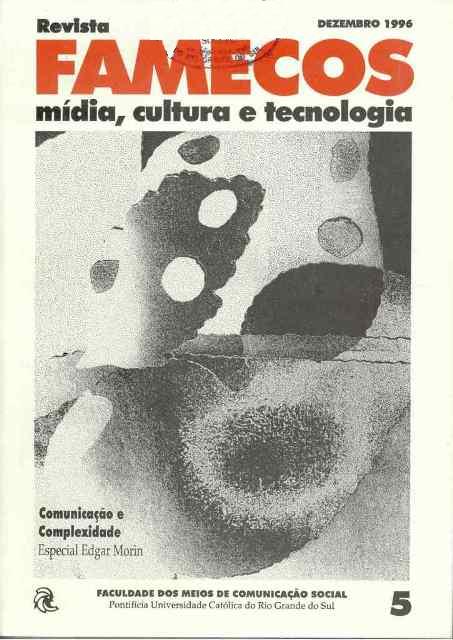Tarantino, Deleuze, Baudrillard, tomatoes
DOI:
https://doi.org/10.15448/1980-3729.1996.5.2952Keywords:
Communication, cinema, Quentin TarantinoAbstract
The polysemy joke told by Mia to Vincent in Pulp Fiction tells the saga of a small baby tomato: to be urged by the paternal order to accompany the step, it is hit and becomes juice. The tomato that turned juice. The diégesis, however, is not contained within the limit of its filmic framing and, as metaphor, reaches the spectator. Keeping the step with the succession of the Tarantino frames is to turn juice into each sequence.
Downloads
References
BAUDRILLARD, Jean. Simulacros e simulação. Lisboa: Relógio d’Água, 1991.
BERNARDET, Jean-Claude. A crueldade irônica: a nova fórmula de violência no cinema dos anos 90. In: Imagens, Campinas: Unicamp, 1994.
COOK, David A. A history of narrative film. Nova Iorque: Norton, 2. ed., 1990.
DAWSON, Jeff. Quentin Tarantino: the cinema of cool. Nova Iorque: Applause, 1995.
DELEUZE, Gilles e GUATTARI, Félix. Mil mesetas: capitalismo y esquizofrenia. Valência: Pre-textos, 1988.
DELGADO, Francisco; PAYAN, Miguel Juan; UCEDA, Jacinto. Quentin Tarantino. Madrid: Ediciones JC, 1995.
JAMESON, Fredric. Espaço e imagem: teorias do pós-moderno e outros ensaios. Rio de Janeiro: UFRJ, 1994.
SHAVIRO, Steven. The cinematic body. Minneapolis: University of Minnesota Press, 1993.
TARANTINO, Quentin. Pulp Fiction. Nova Iorque: Miramax Books, 1994.
Downloads
Published
How to Cite
Issue
Section
License
Copyright
The submission of originals to Revista Famecos implies the transfer by the authors of the right for publication. Authors retain copyright and grant the journal right of first publication. If the authors wish to include the same data into another publication, they must cite Revista Famecos as the site of original publication.
Creative Commons License
Except where otherwise specified, material published in this journal is licensed under a Creative Commons Attribution 4.0 International license, which allows unrestricted use, distribution and reproduction in any medium, provided the original publication is correctly cited.






